- Home
- Madeleine L'engle
The Young Unicorns Page 3
The Young Unicorns Read online
Page 3
“Yes, of course,” Mr. Theo assured him. “He’s a protection for you, anyhow.”
“I wish he could walk to and from school with us,” Rob said, “the way he used to walk us to the school bus. One of the cats usually came along, too. Oh, hi, Rabbi Levy.” He stopped, pulling Rochester up short, to greet an elderly, grey-bearded man standing in front of a synagogue. The liquor store towards which Mr. Theo was heading to buy the wine was on Rob’s route to school, and he had made many friends going back and forth each day, of which the closest was the Rabbi. The synagogue had fascinated Rob. It was the first one he had ever seen, and it was completely different from the other buildings on Broadway, being of pink stone, with ornamental arched doorways, brass scrollwork, and an Oriental dome. It was, to the little boy, a mysteriously beautiful building, completely unlike the great Gothic Cathedral which also drew him, yet sharing the same feeling of soaring heavenwards, of being built on light. Each day on the way home from school he had stopped to stare at the Hebrew lettering above the entrance:
And the Rabbi, seeing his interest, had translated for him: Adath Shomai-el, Congregation of the Ones Obeying God.
“Hello, Rob,” the Rabbi said, now. “Good evening, Mr. Theotocopoulos. Is all well with you?”
Mr. Theo simply smiled and nodded, but Rob studied the question seriously. “Not entirely,” he concluded finally. “May I come talk to you some day after school? I’ll bring Rochester.”
“By all means,” the Rabbi said. “I enjoy our discussions, Rob.”
Mr. Rochester pulled at his chain, so they said goodbye and moved on. “You talk too much,” Mr. Theo told Rob. “You must not air all your affairs to everybody you meet.”
“I don’t!” Rob was indignant. “Rabbi Levy is my special friend.”
“How many special friends have you? Every drunk and fanatic on the street?”
“They’re not! They’re my friends! But they’re not all the kind of special friends you tell things to and have discussions with, the way I do with the Rabbi. He reminds me of my grandfather. My grandfather is a minister. Well, you met him when he was visiting us, didn’t you, Mr. Theo?”
The old man sighed. “Yes, Rob. He is a fine man, and so is the Rabbi. I do see that they have much in common. But you must be a little more discreet, nevertheless.”
“What does discreet mean?” Rob asked as they came to the liquor store. “Oh, here we are. Rochester and I will wait outside while you go in for the wine.”
Emily and Dr. Gregory occupied the first two floors of the mansion; the Austins rented the third and fourth. When Rob and Mr. Theo came up the marble stairs into the living room the record player was on, full blast, a Frescobaldi sonata which Emily and Dave were accompanying on two battered recorders. Mr. Theo, bulbous forehead pink from the cold, turned down the volume as Mrs. Austin shouted from the kitchen, “Come help set the table, Dave. I don’t want Suzy’s germy fingers touching anything.”
Mr. Theo snapped off Rochester’s leash and handed it to Rob to put on the bookcase. Suzy offered the old man the most comfortable chair. “Getting out of household chores is the only advantage of being repulsive.”
In the dining room a tall girl with short brown hair was setting out place mats; she nodded to Dave as he came in.
“Thanks, Dave. You know where the silver is. If everybody wants milk you’d better use the jelly glasses in the pantry.”
“Well, Mr. Theo brought wine, Vicky.”
Vicky paused by the enormous mahogany table which Dr. Gregory had loaned the Austins; light from the crystal chandelier brightened her hair. She called into the living room, “It’s just for you and Mother and Daddy, I suppose?”
“It is not a feast day as far as I know, Victoria,” Mr. Theo said, “and it is a very small bottle.” He rose and came to stand in the open archway between living room and dining room. “And you, Miss Vicky? Do I sense that this is one of your days to be a defiant adolescent?”
“Hi, Mr. Theo,” Mrs. Austin called from the kitchen. “If Vicky is being rather fifteen tonight, I often think that a small amount of defiance is necessary to survive the fifteens.”
“Thanks, Mother,” Vicky called back. “Maybe I’ll be more bearable when I’m as old as Dave.”
“Just wait until you are,” Dave told her. “I’ll pour the milk.”
Mr. Theo leaned against the archway. “I have known Josiah since he was not much older than your little brother and sang in a pure sweet treble with the other little animals in the Cathedral School. It did not take adolescence to make Josiah rebellious. Josiah, you have let your father know you will not be home till late, yes?”
“I have let my father know, no.” Dave came in from the kitchen with milk.
Mr. Theo gave an annoyed grunt. “Nothing should excuse you from courtesy. Once you had left the Alphabat gang I hoped that you would have learned that.”
Dave spilled some milk on the table in his rage and stalked out to the kitchen for a cloth to wipe it up. “Mr. Theo,” he said in a low, angry voice as he came back, “I’m not one of your choirboys any more. I haven’t been a choirboy since eighth grade. I do not run with any gang, Alphabats or any other kind of bats. My father is probably the worst bum they’ve ever had on the Cathedral maintenance staff. I wish some kind of sentimentality wouldn’t keep them from firing him.”
“When your father wishes to be,” the old man said, “he is the best craftsman they’ve ever had in the shop. And I doubt if they’ve ever kept any employee out of sentimentality.”
“Dinner’s ready,” Mrs. Austin called. “Come help me serve, Vicky. Suzy, go tell Daddy we’re ready. Rob, have you and Emily washed your hands? If not, please do.” She came into the dining room, untying the apron that covered her dark kilt and yellow sweater. With one hand she pushed a loose lock of hair back from her forehead; she wore her hair pulled back from her face and knotted neatly at the nape of her neck, but it gave an impression not of severity but of comfort.
Dinner proceeded in its usual noisy, haphazard, and pleasant fashion. They started with an Elizabethan grace which they sang in canon, as a round, first Mr. Theo and Dave, then the girls, and lastly Rob, who was supposed to be joined by his parents but who ended singing alone because Emily inadvertently knocked over Dr. Austin’s wineglass. Doing anything clumsy made her furiously angry, and Dr. Austin had to calm her down rather sharply while Mrs. Austin cleaned up.
Mr. Theo, ignoring the fracas, listened to Rob’s light, sweet treble. “You ought to be in the choir next year.” He sounded cross, which was always his reaction to being moved.
“I wouldn’t mind if you were still organist,” Rob said. “But as long as you’re retired I think I’d rather stay with Vicky and Suzy and Emily.”
“I am around a good deal,” Mr. Theo assured him, “and I still play for a number of services. I would see to it that no one ate you.”
“If Dave were back in the choir, now that his voice has finished moving down …” Rob said.
“I will sing grace for Mr. Theo,” Dave growled, “and that’s all.”
“That’s disgraceful,” Rob said, very pleased with himself.
“He’s only seven.” Vicky’s voice was tolerant. “We must excuse him.”
“Listen, everybody,” Suzy cut in. “I have something to tell you. I’m sorry, Emily, but I have to. You told Dave, and you’ve got to let me tell my family.”
“If you like, I will leave,” Mr. Theo said stiffly.
Emily flashed, “You know perfectly well wild horses couldn’t drag you away.”
But Mr. Theo did not fight back as he did during the piano lessons. “I am concerned about you, child. You are not yourself. Something is wrong.”
Dr. Austin, at the head of the table, looked around at the children, his wife, the old man, said nothing, waited. He looked tired. His brown hair was going very grey. Fatigue made dark lines around his gentle hazel eyes.
“Daddy,” Suzy said, “it’s going to sound funny. I
mean funny peculiar, not funny ha-ha.”
“Go on, Suzy.”
She took a deep breath. “Yesterday after school Rob and Emily and I were walking home together. Vicky stayed for play rehearsal, remember? It was pouring and we thought maybe if we stopped and had cocoa or something the rain would let up.”
Mrs. Austin interpolated, “They called from the drugstore. It seemed a perfectly reasonable request, particularly with Suzy’s cold.”
“You know that junk shop next to the drugstore?” Suzy asked. “Phooka’s Antiques, it’s called, but they’re not my idea of antiques. I mean it’s really junk. Old clothes and votive candles and bleeding hearts. There’s a table outside, usually mostly books and dented pots and pans and egg beaters and stuff like that. And every once in a while something good. Vicky’s found books there, and you found a piece of your favorite Minton china, remember, Mother?”
“I remember,” Mrs. Austin said. “We all know the place, Suzy. It gives me the horrors for some reason. Go on.”
“Dave—” Emily started, licking her lips nervously. Her strong, square hands held the table edge.
“What is it, Emily?” Dr. Austin asked. “Would you rather tell it than listen?”
“You go on, Em,” Suzy said. “I’m losing my voice. I think I’m getting laryngitis on top of everything else.”
“At night,” Emily said vaguely, “we’ve been reading—Mrs. Austin has, you know, the way she usually does, and the last time it was Rob’s turn to choose, the book he chose was Arabian Nights, and I like Arabian Nights even if Suzy thinks she’s too big—”
“The trouble is she’s not grown up enough,” Vicky said.
“Anyhow, one night the story was about Aladdin and the lamp, remember?”
Her voice trailed off and Rob picked up. “And yesterday I saw a lamp like the one in Aladdin. It was out on the table in front of the junk shop, all tarnished, and looking just like the lamp in the picture, sort of like a gravy boat. So I picked it up.”
“This was when we’d finished our cocoa,” Emily added. “It’d stopped raining.”
Suzy, despite her creaky voice, could not keep out of the story. “So I said, and of course I was kidding, I wonder what would happen if we rubbed it? And Rob took me seriously.”
“Somebody has to,” Rob said.
“Stop being a sibling.”
“I am a sibling.”
“Don’t start arguing, for heaven’s sake,” Vicky said.
Rob stuck his tongue out at Suzy, quickly, so his parents wouldn’t see. “I rubbed it and nothing happened.”
Dave asked, “What did you expect to have happen?”
“I don’t know, Dave. Everything’s so peculiar in New York, you get the feeling almost anything can happen. So I gave the lamp to Emily, and she took off her gloves to feel it, and I said rub it, so she did.”
For a moment there was utter silence around the table. Mr. Rochester, the Great Dane, who was not allowed in the dining room during meals, lay on the threshold breathing heavily. Mr. Theo cut into the silence, asking calmly, “I suppose you called up a genie?”
Dave made an angry noise, but Rob answered, “Yes. She did.”
They had been standing around the lamp, looking at Emily holding it in her strong fingers, rubbing it. Certainly none of them, not even Rob, expected to hear a sepulchral voice behind them.
“You called me?”
They swung round.
Standing, looking down on them, was a tall, powerful figure in long smoky green robes and a pale blue turban. He repeated, “You called me? I am the genie Hythloday, the servant of the lamp.”
“You can’t be!” Suzy cried. “There isn’t any such thing.”
“Then why did you raise me up?”
“We didn’t. At least we didn’t expect to. At least I didn’t.”
The voice of the genie, if that is what he was, was as smoky as his robes. “But you have called me up, my dear, and perhaps now that you have done so, there is something I can do for you? Is there anything you could wish to command of your servant?”
Rob asked, “Are you our servant?”
“I am the slave of the lamp, my dear, and since you have raised me up, I am at your service. What would you?”
Rob put his red-mittened hands on his hips and stared at the figure. “What about wishes? Do we get three wishes?”
“Rob!” Suzy scolded. “This isn’t a fairy tale. Come on. Let’s go home. Mother’ll be—”
“But don’t genies grant wishes?” Rob asked.
“In moderation, my dear. Your servant will grant wishes within reason.”
For the first time Emily, who had been scowling and listening, spoke. “Why within reason? Genies aren’t reasonable.”
“What will you, my dear? Ask me and we shall see what the slave of the lamp can do for you.”
“Make me see again.”
Suzy knocked the lamp out of Emily’s hand.
Emily gave an angry, anguished wail.
Suzy burst into tears. “Emily, you can’t ask that! It’s wrong!”
“Why? What’s wrong about it?”
“I don’t believe in genies and I don’t believe in magic. It’s wrong, I know it’s wrong!”
“Why?” Emily asked again. “How could it be wrong?”
From behind them came a clear voice, crisp and completely unlike the genie’s hollow-toned speech. “I think, child, that you are beyond that kind of wishing.”
Again the children turned. The genie was gone, and in his place stood a man under a huge black umbrella.
“Sorry to interfere,” he said, “but I couldn’t help hearing while I was putting up my umbrella. I rather think, you know, that I’d be suspicious of a twentieth-century genie.” He nodded at them and left.
Nobody laughed at the children’s story. Dr. Austin asked in a tone of detached scientific interest, “Can you describe the genie a little better?”
“He was just—huge,” Suzy said. “I mean really. Remember I’m not given to flights of imagination like Vicky.”
Normally Vicky would have risen angrily to this, but as she looked across the table she saw that Emily was struggling to hold back tears, and it was the first time in the three months that the Austins had known Emily that anyone had see her cry—except tears of rage.
So Suzy, uninterrupted, continued, “Honestly, Daddy. I’ll bet he was even taller than Dr. Hyde.”
“But where did he come from?” Dave asked.
“Well, that’s just it,” Rob answered. “We don’t know. He just sort of appeared.”
Suzy the scientist was scornful. “Next thing you’ll be saying you saw smoke coming out of the lamp and he materialized. The thing is that we weren’t really looking. I agree with the man under the umbrella. I’m extremely suspicious of a twentieth-century genie.”
“This man with the umbrella—tell me: what did he look like?” Mr. Theo asked.
“Bald,” Suzy said. “I mean really bald.”
“And his voice. Emily, describe to me his voice.”
“English,” Emily said. “But not the kind that spits out all its teeth with its consonants. Clear and clean. Not old and not young. It was a Bach kind of voice, Mr. Theo, if you know what I mean.”
“Yes, child. And bald? Completely bald?”
“Bald as Humpty Dumpty,” Rob said, “but not as fat. And he didn’t have any eyebrows.”
Mr. Theo gave a small puff. “That is strange. That is extraordinarily strange. What’s Tallis doing in New York?”
“What’s that?” Dr. Austin asked.
But Suzy was saying, “It doesn’t make sense. I still don’t believe in genies.”
Dr. Austin asked, “Are you sure it wasn’t just another neighborhood character? There are plenty around.”
“Yeah, and Rob picks them all up. No, Daddy, this was different.”
Mrs. Austin suggested, “Halloween was just last week. Maybe it was someone’s idea of a joke.”
&nb
sp; “Joke indeed.” Mr. Theo indicated his empty plate. “Mrs. Austin, this spaghetti bears no relationship to the pink pasta one is usually given. I would like some more to go with my wine. When I am with you Austins I am a convulsive eater.”
She took the old man’s plate. “Anybody else? Dave?”
“Yes. Please.”
“Emily?”
“But I’m afraid I’m making a mess.”
“It doesn’t matter. The blouse goes into the wash tonight.” She had not noticed that Emily’s voice was shaking.
“It’s just that I’m all over spaghetti … . If you’ll excuse me, I’ll go wash up.” She pushed out of her chair.
Rob started after her, but Dr. Austin stopped him. “Leave her alone, Rob.”
“But she’s—”
“I know, Rob. That’s why she needs to be alone for a few minutes. Anybody’s love right now, even yours, would just upset her more. All right, Suzy, let’s get it clear. Emily asked the genie to give her back her eyesight and this made you angry. Why?”
“Daddy,” Suzy sounded desperate because her father would ask her to explain such a thing. “We’ve talked and talked about it, I mean when we first came to New York, and Rob kept praying for a miracle, that Emily would wake up in the morning and be able to see, and I didn’t want that kind of a miracle, I wanted something real. I wanted doctors to be able to operate and do something.”
“That’s right.” Mrs. Austin returned with the spaghetti.
“And you told Suzy that would be even more impossible than Rob’s miracle.”
“Suzy wants science to be able to do everything,” Vicky said.
Dr. Austin looked stern. “There isn’t any operation that can help Emily.”
“But with the laser, with the Micro-Ray,” Suzy started.

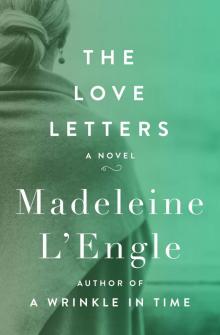 Love Letters
Love Letters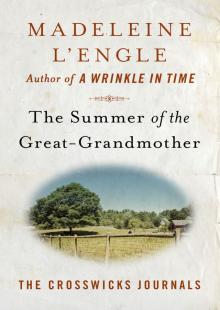 The Summer of the Great-Grandmother
The Summer of the Great-Grandmother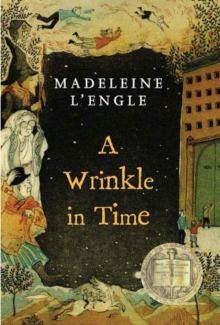 A Wrinkle in Time
A Wrinkle in Time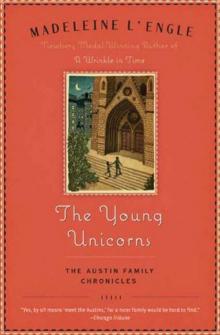 The Young Unicorns
The Young Unicorns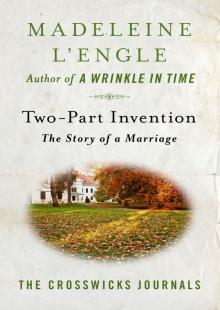 Two-Part Invention: The Story of a Marriage
Two-Part Invention: The Story of a Marriage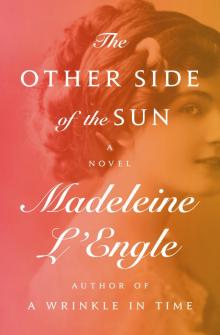 The Other Side of the Sun
The Other Side of the Sun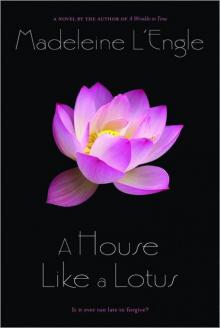 A House Like a Lotus
A House Like a Lotus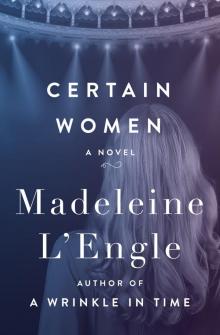 Certain Women
Certain Women Many Waters
Many Waters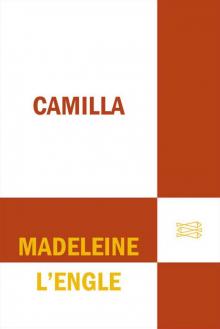 Camilla
Camilla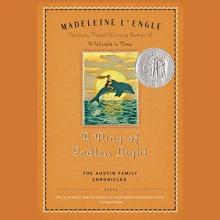 A Ring of Endless Light
A Ring of Endless Light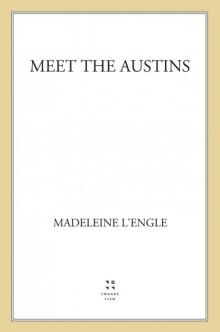 Meet the Austins
Meet the Austins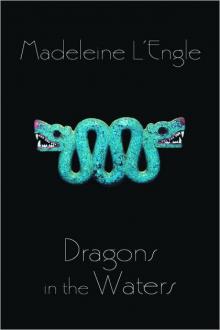 Dragons in the Waters
Dragons in the Waters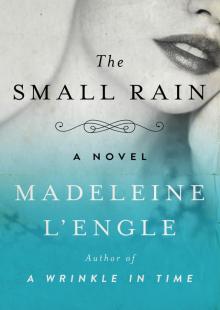 The Small Rain
The Small Rain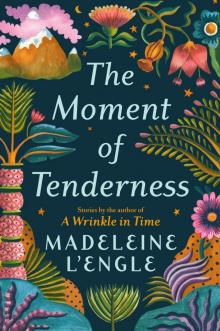 The Moment of Tenderness
The Moment of Tenderness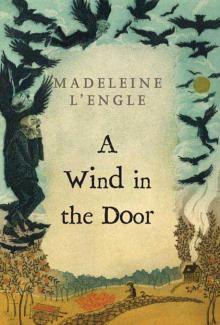 A Wind in the Door
A Wind in the Door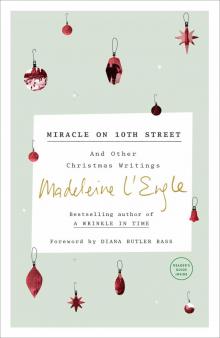 Miracle on 10th Street
Miracle on 10th Street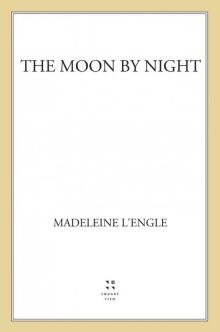 The Moon by Night
The Moon by Night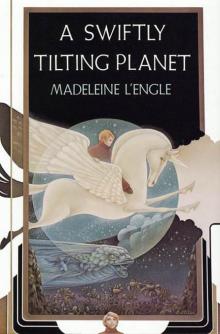 A Swiftly Tilting Planet
A Swiftly Tilting Planet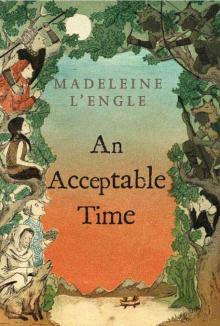 An Acceptable Time
An Acceptable Time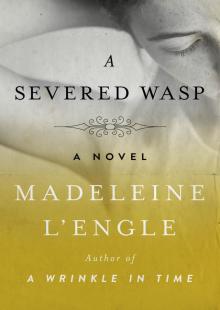 A Severed Wasp
A Severed Wasp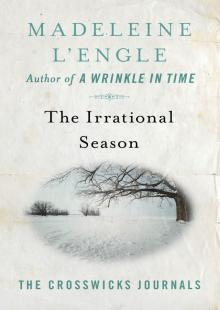 The Irrational Season
The Irrational Season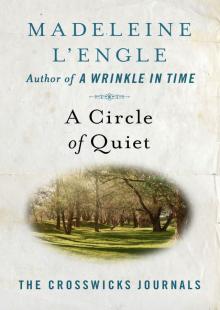 A Circle of Quiet
A Circle of Quiet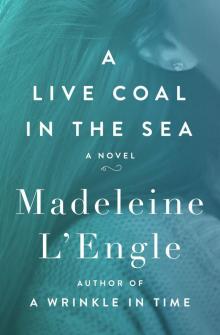 A Live Coal in the Sea
A Live Coal in the Sea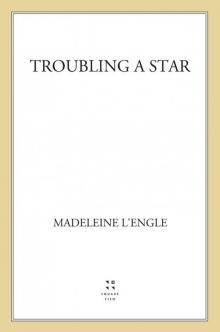 Troubling a Star
Troubling a Star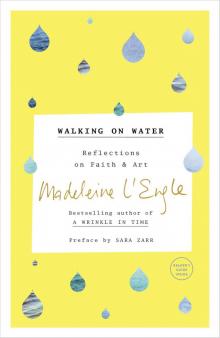 Walking on Water: Reflections on Faith and Art
Walking on Water: Reflections on Faith and Art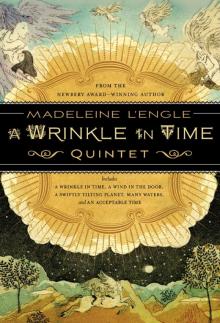 A Wrinkle in Time Quintet
A Wrinkle in Time Quintet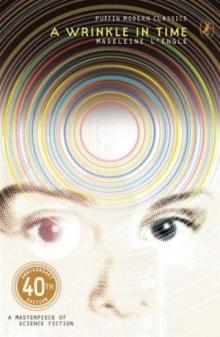 Wrinkle in Time
Wrinkle in Time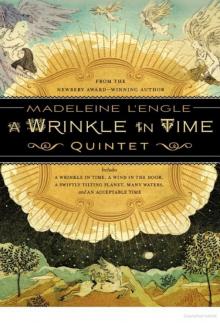 The Wrinkle in Time Quintet
The Wrinkle in Time Quintet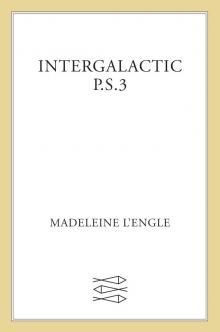 Intergalactic P.S. 3
Intergalactic P.S. 3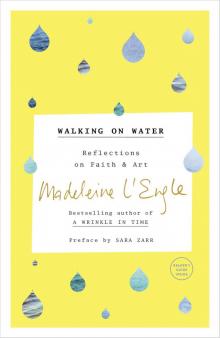 Walking on Water
Walking on Water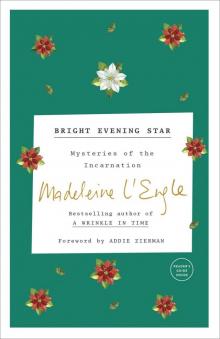 Bright Evening Star
Bright Evening Star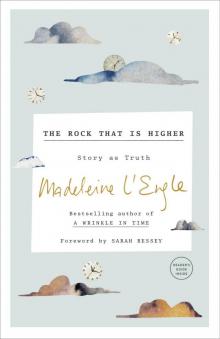 The Rock That Is Higher
The Rock That Is Higher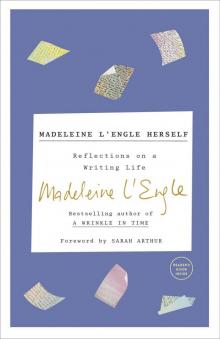 Madeleine L'Engle Herself
Madeleine L'Engle Herself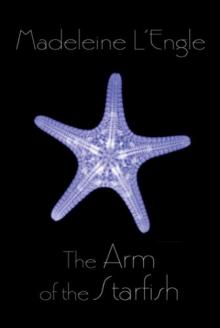 The Arm of the Starfish
The Arm of the Starfish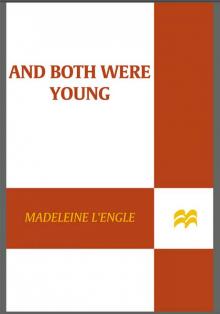 And Both Were Young
And Both Were Young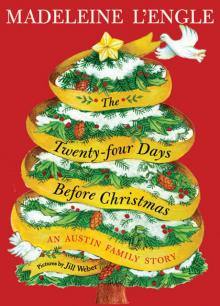 The Twenty-four Days Before Christmas
The Twenty-four Days Before Christmas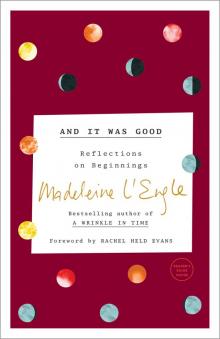 And It Was Good
And It Was Good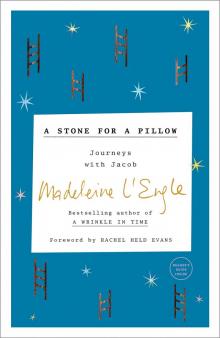 A Stone for a Pillow
A Stone for a Pillow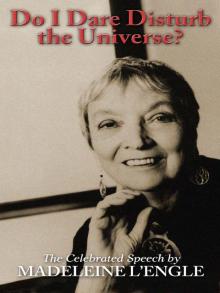 Do I Dare Disturb the Universe?
Do I Dare Disturb the Universe?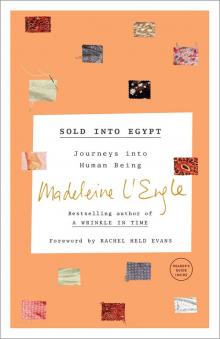 Sold into Egypt
Sold into Egypt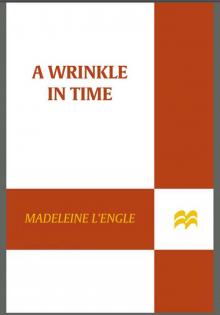 A Wrinkle in Time (Madeleine L'Engle's Time Quintet)
A Wrinkle in Time (Madeleine L'Engle's Time Quintet)